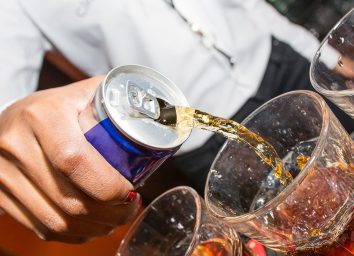The Most Dangerous Ingredients in Energy Drinks, According to Dietitians
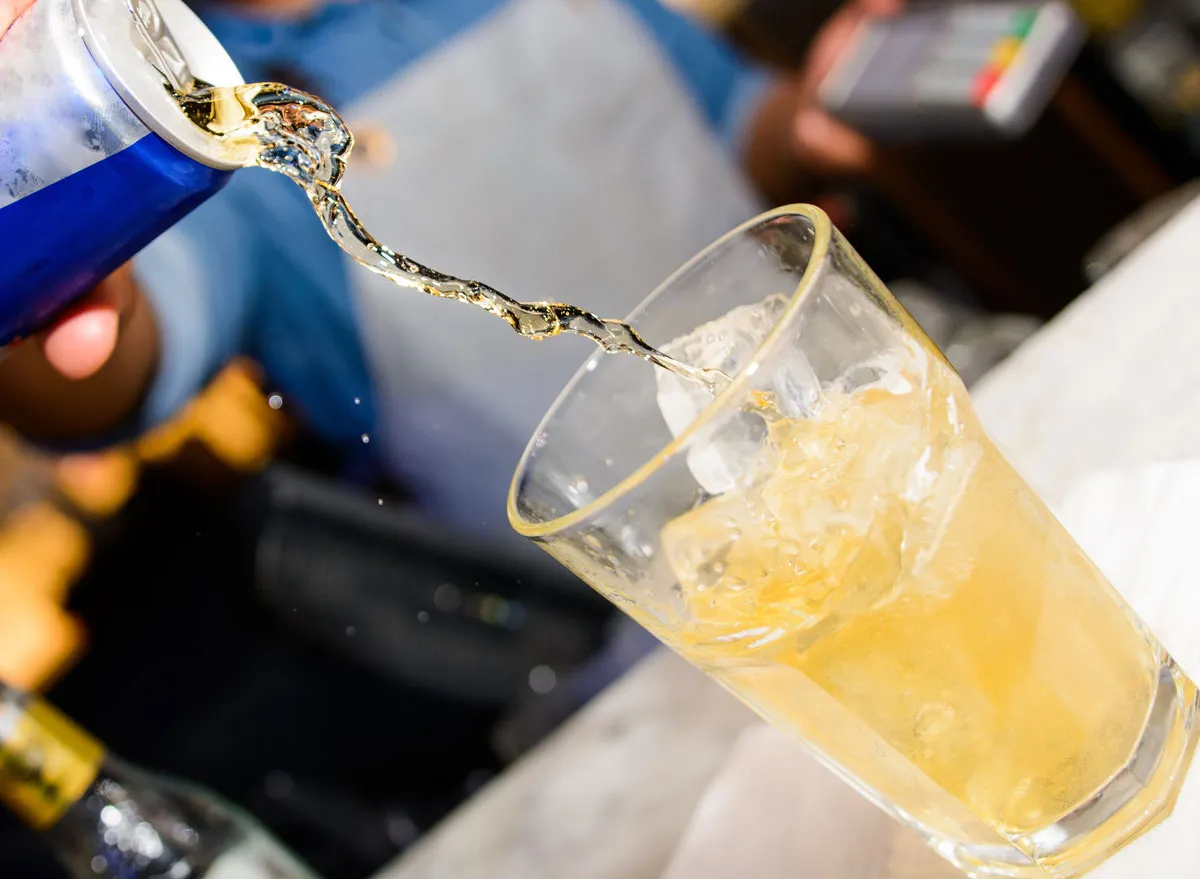
The couch is sweetly singing "nap time," but the day is young, and you have so much to do. So, you reach for an energy drink to get you through the next couple of hours. While these caffeine-jacked products keep you alert and "improve cognitive performance" (which manufacturers claim, but studies have debunked) they contain a cocktail of ingredients, some of which you may never have come across.
The Food and Drug Administration (FDA) doesn't regulate energy drinks, which are essentially liquid dietary supplements. While clinical studies have shown that these products are generally safe, they could provoke negative reactions in some people, especially when consumed in large quantities or in combination with other beverages, supplements, or prescription drugs. The next time you reach for an energy drink, think about these potentially problematic ingredients and the harmful effects they may have on your body. And for even more helpful drinking tips, be sure to check out our list of the 108 Most Popular Sodas Ranked By How Toxic They Are.
Caffeine

The primary active ingredient in energy beverages is, not surprisingly, caffeine. A 16-ounce can has between 70 and 240 milligrams of caffeine, while the typical energy shot contains 113 to 200 milligrams. For comparison, an 8-ounce coffee contains around 100 milligrams.
That might not seem like a lot of caffeine in comparison, but if you're downing a few cans at a time, the caffeine can add up quickly. What's more, most energy products contain other stimulant ingredients that contribute to the eye-opening, heart-racing effects—like sugar.
Depending on your sensitivity to caffeine's effects and how much caffeine you ingest, the stimulant can rapidly increase heart rate and blood pressure, trigger heart rhythm disturbances, and symptoms like dehydration, agitation, nausea, shaking, and insomnia, according to the National Center for Complementary and Integrative Health (NCCIH).
One of the biggest concerns regarding caffeine in energy drinks is mixing the beverages with alcohol, like vodka or grain alcohol, which is popular with young adults.
"Alcohol is a central nervous system depressant, it makes you feel sleepy," says Samantha Cassetty, RD. She points out that energy drinks will give your body the opposite effect, which can lead to dangerous situations if not handled properly.
Instead of reaching for a can, how about trying one of these Drinks You Should Have Regularly, According to the USDA?
Taurine

Taurine is an amino acid that serves as a stimulant to enhance physical and mental performance. Even though our bodies may produce it naturally, taurine comes from food, particularly meat and seafood. The typical American diet provides between 123 and 178 milligrams of taurine daily. However, esearchers reporting in the Cleveland Clinic Journal of Medicine found that consuming just one 8-ounce energy drink can boost your daily intake of taurine 6 to 16 times. Combined with the caffeine in energy drinks, taurine may boost blood pressure and heart rate. High amounts of taurine may also impact the development of the adolescent, according to the Society for Birth Defects Research and Prevention.
Sugar
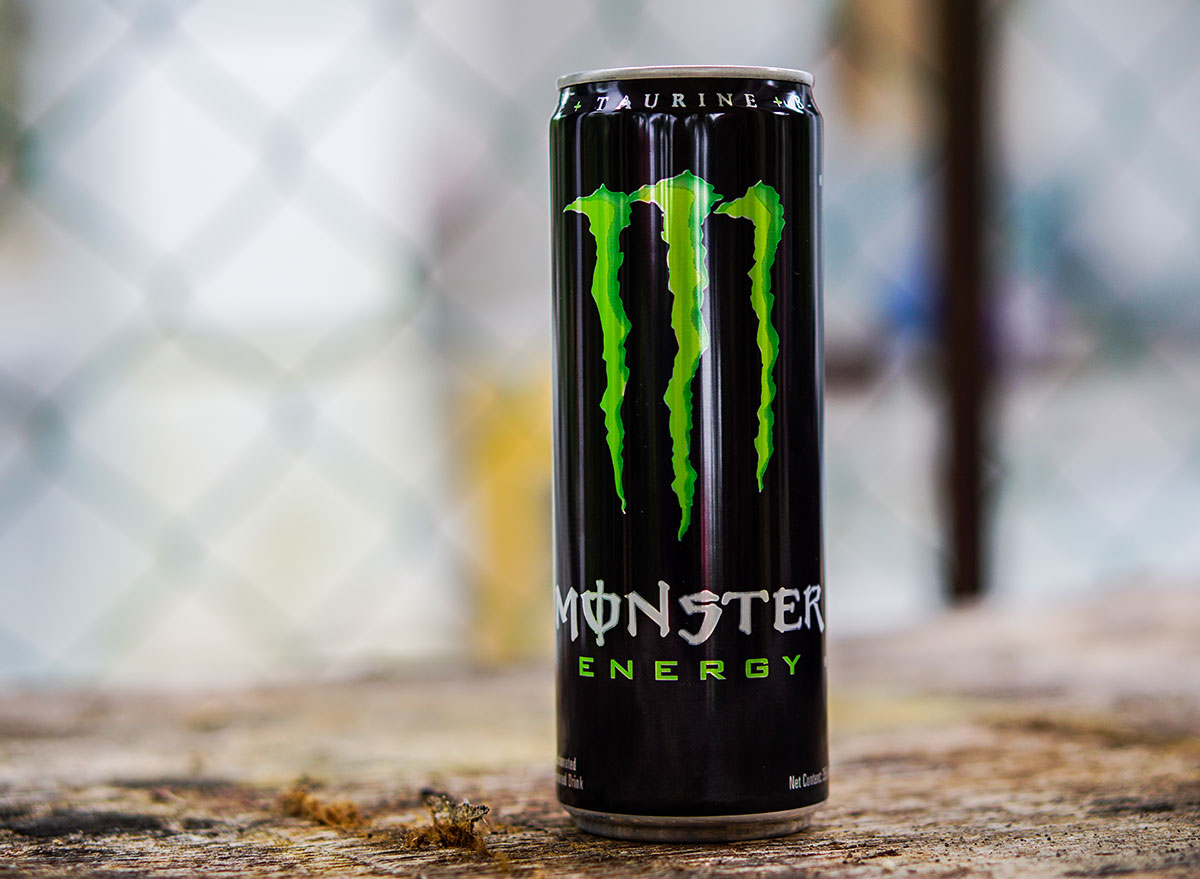
Don't think of energy drinks as acceptable fitness beverages. They can saddle you with a lot of extra calories and sugar, leading to obesity, type 2 diabetes, and heart disease. Consider: A 16-ounce can of Monster Energy contains 233 calories and 56 grams of sugar. That's more sugar than you get in two small Dairy Queen ice cream cones.
The problem with high-calorie/high-sugar beverages is that they make it very easy to down a lot of calories without even realizing it.
"If you were to eat a gummy candy your body registers it, it calculates it. You've eaten something and so you're going to compensate, not in full, but in part for eating that thing," says Cassetty. "When you drink liquid sugar that doesn't happen, it's just adding to your daily intake and could put you in a calorie surplus."
The American Heart Association suggests that people limit their sugar intake to 25 to 36 grams per day.
Niacin
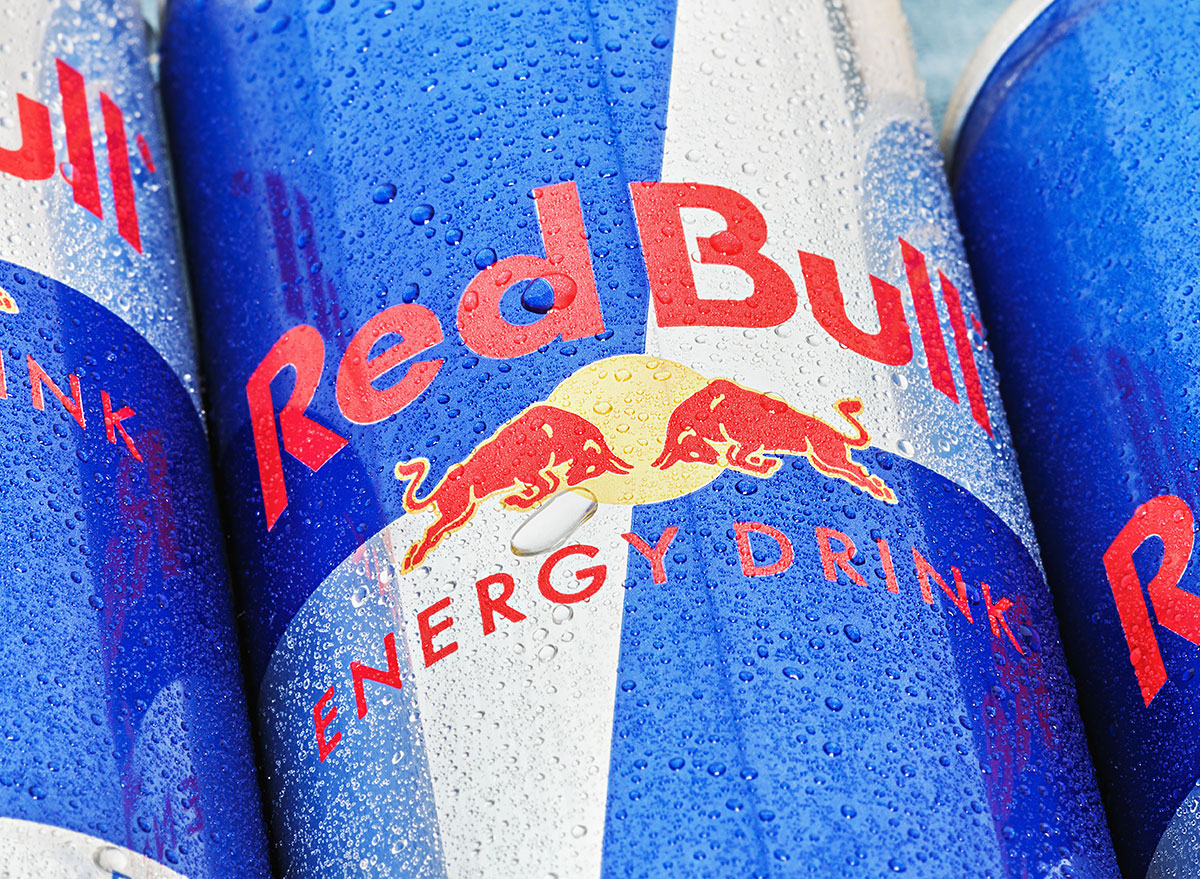
The water-soluble vitamin B3 known as niacin has been shown to increase good HDL cholesterol and lower LDL (bad) cholesterol and triglycerides, another blood fat. However, some people may be particularly sensitive to this vitamin found in many energy drinks. These beverages usually contain 40 milligrams of niacin, according to Mayo Clinic Proceedings, while the recommended intake is 16 milligrams for men and 14 for women. While the risk of niacin toxicity is low, it can happen, according to Philadelphia-based nutritionist Beth Auguste, RD, of Be Well with Beth.
"It's possible to over-consume so you do want to check the label to see what percentage of your recommended daily allowance these energy drinks contain," says Auguste.
Signs of niacin toxicity include flushing, dizziness, low blood pressure, fatigue, headache, upset stomach, nausea, blurred vision, and inflammation of the liver.
Guarana
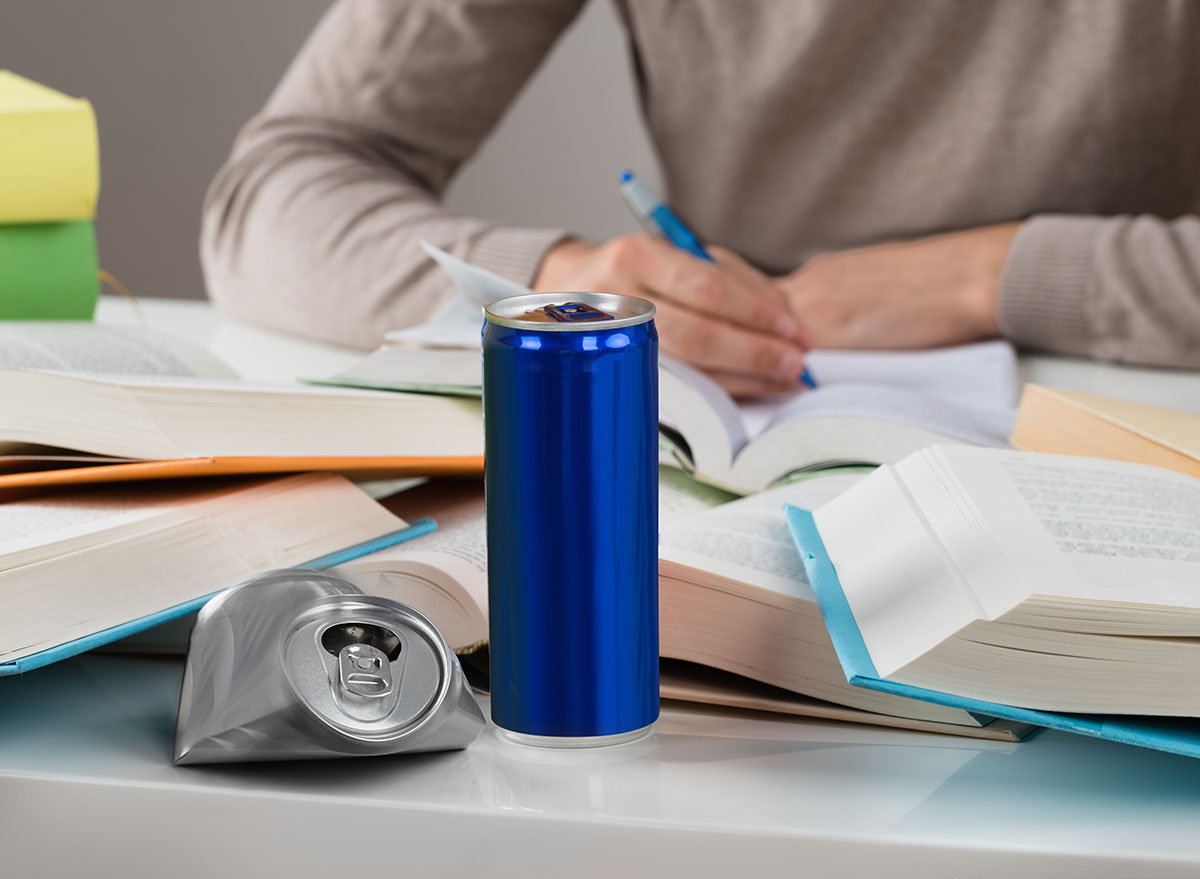
Guarana is a fruit whose seeds are used as a caffeine additive in many energy drinks. In a study on the stimulating effects of guarana, published by PLOS One, researchers found that the fruit's seeds have highly concentrated amounts of caffeine, about four times the amount of caffeine found in coffee beans.
"A lot of people don't realize that some of the herbal ingredients in energy drinks are forms of caffeine," says Cassetty. "They are in addition to caffeine, increasing the overall caffeine content."
Ginseng
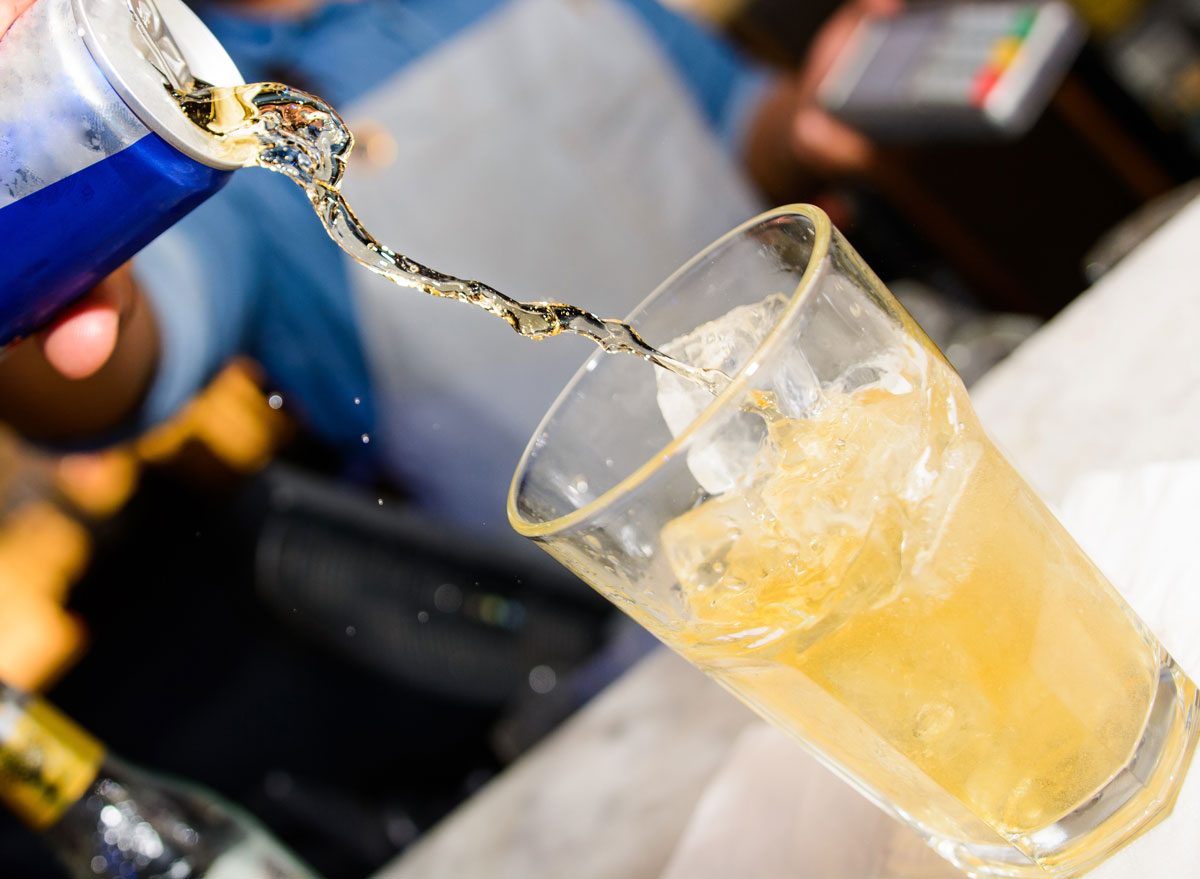
The NCCIH found that ginseng can "improve physical stamina, concentration, and memory, stimulate immune function, slow the aging process, and relieve various other health problems." So, what's not to like? Well, while ginseng is usually well tolerated, it causes some people to experience hypertension, disrupted sleep, diarrhea, and more when consumed in high amounts, according to Michigan State University Center for Research on Ingredient Safety.
Ginseng in large quantities has also been shown to negatively interact with caffeine, alcohol, and prescription medications, including blood-thinners, diabetic medications, immunosuppressants, and antidepressants, according to Poison Control (poison.org).
Because there are so many ingredients in most energy drinks and their interactions with supplements, foods, and prescription medications have not been studied exhaustively, experts suggest checking with your physician before consuming energy drinks, especially if you suffer from arrhythmias or coronary artery disease. For more warnings, check out The Unhealthiest Supplements You Should Not Take.
